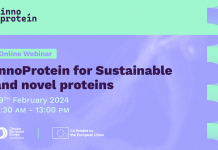Research finds that plant-based meat consumption is reducing across the UK, despite a greater uptake of other climate-friendly practices. How do we drive commercial growth again?
It’s safe to say that barbecue season has well and truly arrived, but as the nation soaks up the summer sun, there’s a worrying trend which left unchecked, could help push temperatures uncomfortably high and bring more extreme weather such as floods and droughts.
After a spell of rising popularity, there are less likely to be plant-based meat burgers on the grill this year. Consumption of plant-based meat is shrinking and some brands are cutting their ranges or even struggling for survival.
Why are people turning away from plant-based meat adoption?
The cost of living crisis has a huge role to play, as consumers trim their food budgets and more expensive plant-based products fail to make the cut. But price sensitivity isn’t the only thing standing in the way of greater plant-based meat adoption. Barriers range from concerns about taste and texture to weak brand equity not driving value in the minds of consumers.
This is not great news for our warming planet. It’s well documented that eating less meat is a powerful way to reduce emissions and help tackle climate change. Reversing this trend isn’t just about delivering commercial growth – it’s a crucial opportunity to encourage a more climate-friendly way of living.
Data from Mintel finds that roughly a quarter of the UK population eat plant-based meat at least once per week. How can we get the other three quarters to choose plant-based meat more often? To effectively change mainstream behaviour, we need to get to grips with what’s actually holding these consumers back.
Men eat more meat and are less open to becoming vegetarian
Research has found that compared to women, men eat more meat and are less open to becoming vegetarian. It’s also the case that the more men conform to traditional gender roles, the more frequently they’re likely to eat beef and chicken and the less they are open to vegetarianism.
Which brings us back to barbecues. Search Google Images for pictures of a person barbecuing and you’ll find yourself scrolling through endless images of men grilling sausages and steaks. Although we’ve broken down many of society’s rigid gender stereotypes over the years, for many, eating meat continues to be closely linked to being a male trait.
The more men conform to traditional gender roles, the less they are open to vegetarianism
We all have a certain image of ourselves, and the groups we see ourselves as belonging to, which is reinforced through our behaviours and choices. All of which means that for these men, the idea of giving up meat can actually threaten their sense of identity and group belonging.
How can we get more men with traditional views of masculinity to eat more plant-based meat?
One idea is to use positive deviants. Humans look to others for cues on how we should behave. But if we see someone like us (or someone that we admire) acting differently – a ‘positive deviant’ this can start to set a new norm. A ‘manly,’ pro-plant-based brand spokesperson could get people thinking differently about the connection between masculinity and meat-eating.
It’s a tactic we can see at work in other sectors. Mental health charity CALM employed it for their ‘Invisible opponent ’ campaign, choosing heavyweight boxer Tyson Fury to reframe talking about mental health as a manlier choice than keeping struggles bottled up.
We could also use the influence of other people to drive more men to change. For example, by getting fathers thinking about how their kids see them, tapping into their desire to be a good role model and making the world a better place for their kids? Or promote giving up meat as being desirable to women, driving men to choose plant-based meat options in the hope it could boost their chances of scoring a date?
It’s an approach that’s been used before to reach young male drivers for the Scottish Government. This group is more likely to have car accidents than anyone else, partly because they see themselves as invincible.
They also tend to ignore warnings from authority figures like their parents or the police. However, research found that young men become more careful when they have ‘precious cargo’, such as elderly relatives, in the car.
This insight was used as the basis of the ‘Drive like Gran’s in the car‘ campaign which used these influential family members to drive home the message. As a result, 40% of this hard-to-influence group took action.

Reframing new dietary behaviours as socially desirable
From meat and dairy substitutes to air source heat pumps, the number of products and technologies that contribute towards radically reducing carbon emissions continue to grow.
Marketers play a key role in encouraging more people to start adopting these tools and behaviours. But as the example of plant-based meat demonstrates, telling mainstream audiences about the climate benefits of these products isn’t enough.
If we really want to encourage lasting change amongst a broad spectrum of the British public, we need to understand the role that these actions play in people’s lives and identities and reframe new behaviours as socially desirable.
There’s still time for climate-friendly brands to beef up on behaviour change principles – the future of our world depends on it.
Sources
- https://www.bbc.co.uk/news/business-65481714
- https://plantbasednews.org/news/economics/vegan-meat-brand-meatless-prepares-for-bankruptcy/
- https://www.kantar.com/uki/inspiration/brands/brand-strategy-the-missing-ingredient-for-meatfree-success
- https://store.mintel.com/report/uk-meat-substitutes-market-report
- https://www.creativereview.co.uk/calm-invisible-opponent-commercial/
This piece was written and provided by Caroline Olechowski, Senior Strategist, Leith.
Editor's Recommended Articles
-
Must Read >> Lower cancer risk in diets with lower meat intake














